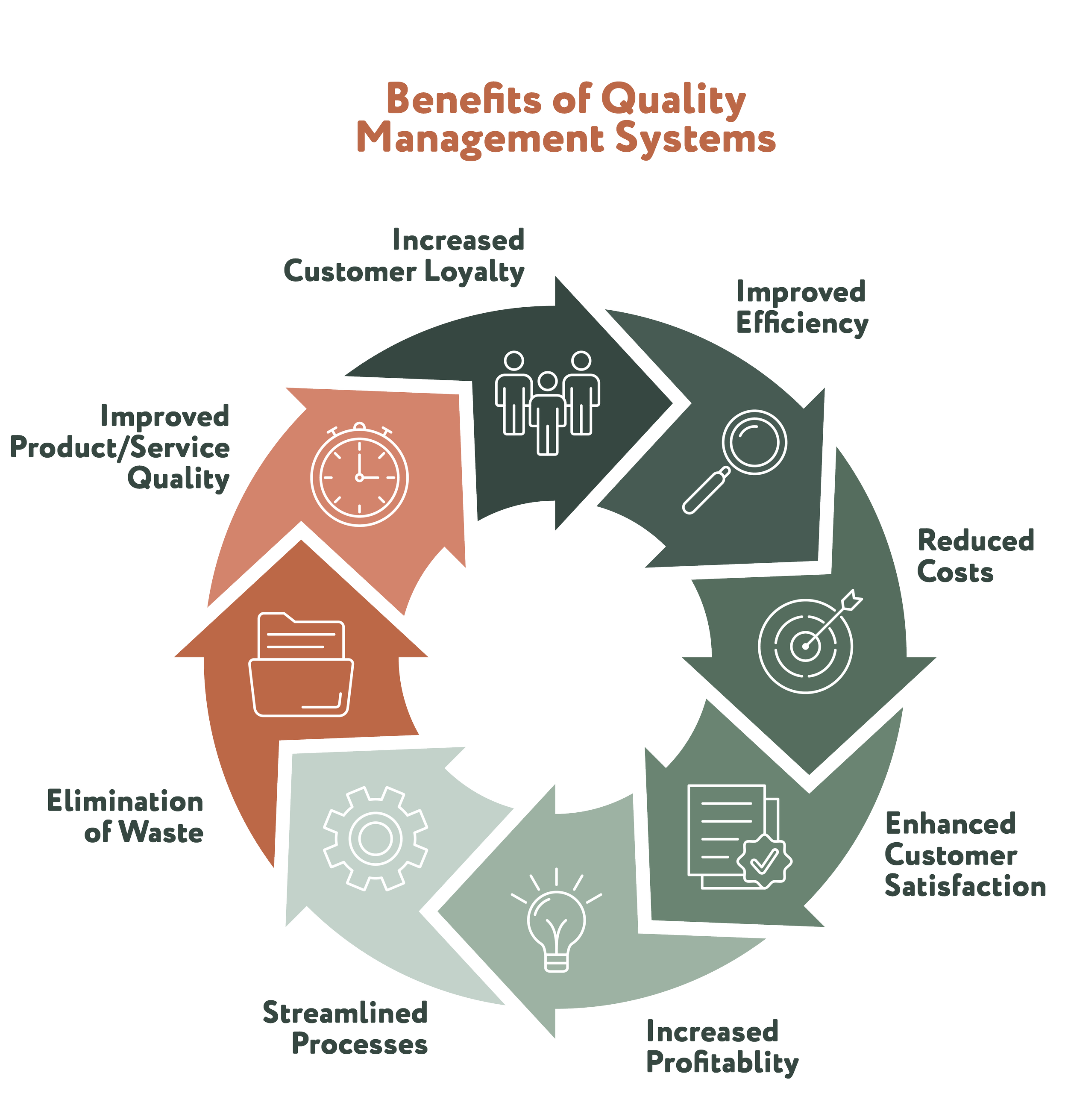Management System Consultancy
Tailored Management System Consultancy for ISO Standards 9001, 14001, 45001 and other management systems
Our goal is simple: to create systems that fit your unique business needs while ensuring compliance with industry standards.
We specialize in providing expert consultancy for ISO 9001, 14001, 45001 and other management systems. We partner with organisations of all sizes and sectors to help them implement, manage, and maintain these internationally recognized standards.
Whether you’re starting your journey to certification or looking to optimize your current system, we work alongside you to build solutions that support your long-term success.
Supporting Your Business with Management Systems That Work
We offer a full spectrum of services to ensure your management systems align with your goals, providing a solid foundation for growth and compliance:
Implementation: We guide you through the entire implementation process, from assessing your current practices to setting up efficient systems that are ISO-compliant and sustainable.
System Maintenance & Management: ISO standards require ongoing effort. We ensure your system is properly maintained, keeping it up to date with industry changes and operational needs, while maximizing its effectiveness.
Auditing & Compliance: We provide both internal and external auditing services, ensuring your systems are functioning correctly and meeting regulatory requirements. We provide detailed feedback and practical guidance to improve your processes.
Continuous Improvement: Through regular reviews and updates, we help you establish continuous improvement initiatives, ensuring your systems evolve to meet new challenges and opportunities.
Comprehensive Services Tailored to Your Business
We believe that there is no one-size-fits-all solution. Every business is unique, and your management systems should reflect that. We focus on developing systems that are tailored to your specific needs, culture, and goals.
Here’s how we work:
Understanding Your Business: We take the time to understand your processes, challenges, and objectives before recommending any changes.
Collaboration at Every Step: You are involved at every stage of the process. We collaborate with your team to ensure the new systems are a perfect fit for your business, ensuring smooth integration.
Practical & Sustainable Solutions: We focus on creating practical solutions that can be sustained long-term, reducing the need for frequent overhauls while driving efficiency.
Support: We provide support throughout the process, ensuring you are confident in using and maintaining the systems, so that your investment continues to deliver value.
A Personalised Approach Focused on Your Success
How We Can Help
JK Quality Ltd offers a comprehensive, all-in-one package that includes everything your business needs to implement and maintain an integrated management system.
All-in-One Documentation: Complete sets of documents tailored to your business, ensuring all ISO requirements are covered in a cohesive, integrated package.
Seamless Integration: we will guide you through the process of integrating the standards into a unified management system that fits your business needs.
Ongoing Support: We don’t just provide the documentation—we offer continued support to help maintain and improve your system, ensuring compliance and efficiency over time.
With our expert guidance, you’ll have an management system that not only meets international standards but also drives efficiency, reduces costs, and helps your business thrive.
Benefits of an Integrated Management System (IMS)
1. Reduced Overlap and Simplified Processes
By integrating ISO standards into a single management system, businesses can eliminate redundancy, streamline processes, and reduce the time and effort spent on separate audits and reporting. This leads to a more efficient approach as many of the core principles and processes overlap.
An Integrated Management System (IMS) that combines management standards offers numerous advantages for businesses looking to streamline operations, reduce inefficiencies, and ensure compliance across multiple standards.
2. Improved Efficiency and Cost Savings
An integrated system reduces the need for multiple management systems and audits, saving time and resources. By having a unified approach to risk management, documentation, and internal audits, businesses can optimize resources. This efficiency also translates to improved operational performance and profitability.
3. Holistic Risk Management
An IMS helps businesses identify and manage risks across all areas of operation—quality, environment, and health & safety—using a single framework. This integrated approach provides a clearer view of the organization’s risks and enables more effective decision-making and preventive measures.
4. Enhanced Compliance and Legal Conformance
Integrating these standards helps ensure that your business complies with relevant regulations across quality, environmental, and health and safety domains. With a unified system, the likelihood of missing regulatory requirements or facing compliance issues is significantly reduced, helping to avoid penalties and reputational damage.
5. Better Decision Making
With all management aspects integrated into one system, businesses can access clearer, real-time data on performance across multiple areas. This enables better decision-making, as leaders can view and act on a comprehensive set of metrics rather than dealing with isolated systems.
6. Continuous Improvement
An integrated system promotes continual improvement across all areas of the business. By aligning objectives and processes for quality, environment, and health & safety, organizations can more easily monitor, assess, and improve their practices, driving long-term growth and sustainability.
7. Simplified Reporting and Documentation
An IMS allows businesses to streamline their documentation and reporting processes. Instead of managing separate sets of documents for each standard, organizations can use one cohesive set of documents that cover all ISO requirements. This reduces complexity and makes it easier to maintain and update records.


